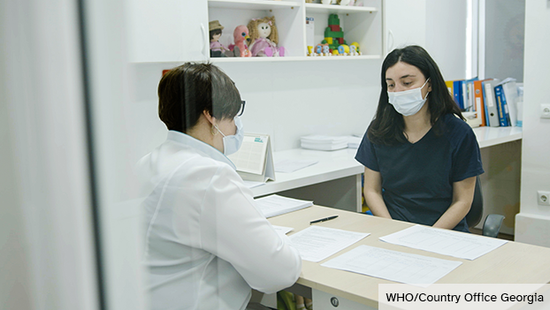
This course is the third course in a five-course series. It introduces you to the management of people who have suffered or are suspected to have suffered from intimate partner violence (IPV). It describes how to recognize and manage intimate partner violence.
语言: English
课程信息
Course overview:
Intimate partner violence (IPV) is one of the most common forms of violence against women. It includes physically, sexually, and emotionally abusive acts, and controlling behaviour by an intimate partner or ex-partner. The course describes how to recognize and manage intimate partner violence and is intended for qualified healthcare providers administering services to survivors of rape and intimate partner violence in humanitarian emergencies. It considers available resources, materials, and drugs, and national policies and procedures.
This course is the third course in a five-course series. We recommend to first complete the first two courses
- Introduction to the clinical management of rape and intimate partner violence in humanitarian settings
- Mental health and psychosocial support: Clinical management of rape and intimate partner violence in humanitarian settings
The course is comprised of videos, presentations, case studies, and quizzes. It focuses on knowledge and skill-building.
Course duration: Approximately one hour.
你将学到什么
- Explain what is meant by intimate partner violence.
- Describe the signs of intimate partner violence, regardless of how the patient presents.
- Describe the support available for people experiencing intimate partner violence.
- Describe how to identify if a patient is at immediate risk for intimate partner violence.
- Explain how direct and indirect questions can be used to support a patient who is or is suspected of being a survivor of intimate partner violence.
- Explain how to have a safe and supportive conversation with a person who has suffered or is suspected to have suffered from intimate partner violence, including use of appropriate language, and consideration of the local context.
- Describe how to refer patients to other health care providers and community services.
- Explain how to obtain and respect clear and informed consent before treating a patient or documenting their visit.
- Describe how to document a patient’s visit and the procedures used to protect patient confidentiality.
本课程适用于谁
- The primary audience for this program is qualified health care providers (e.g. health coordinators, medical doctors, clinical officers, midwives, and nurses) administering services to survivors of rape and intimate partner violence in humanitarian emergencies.
订阅本课程
证书要求
- 课程证书 授予者需要至少取得课程总分的百分之 80%。
- 参与证明 授予者需要至少学习了所有课程资料的百分之 80%。
- 完成课程可获得开放徽章。